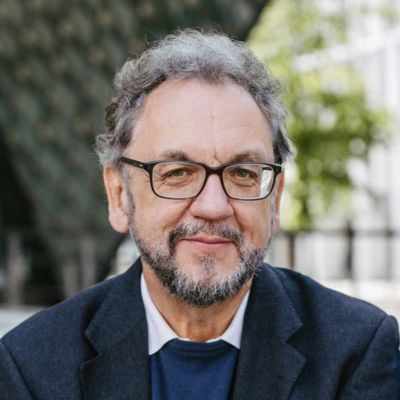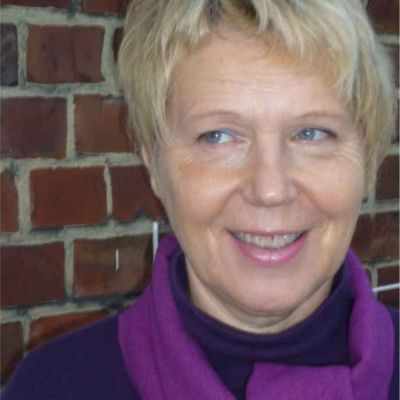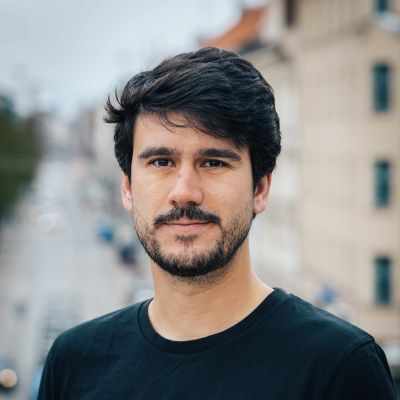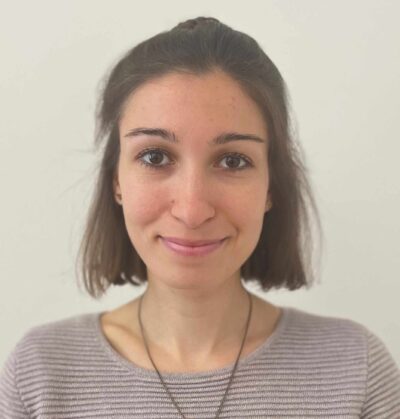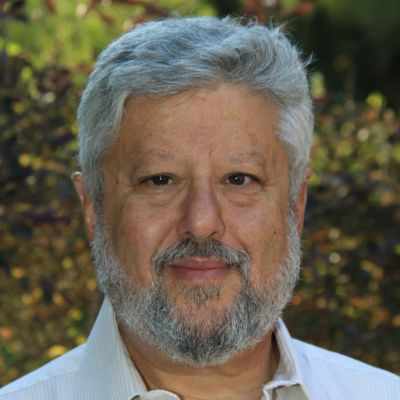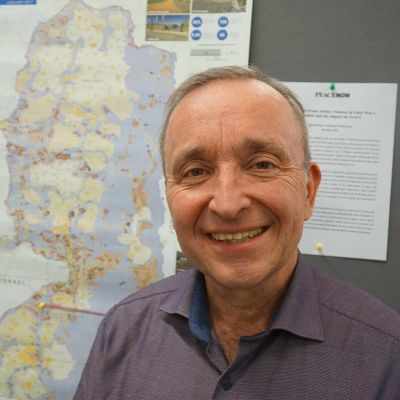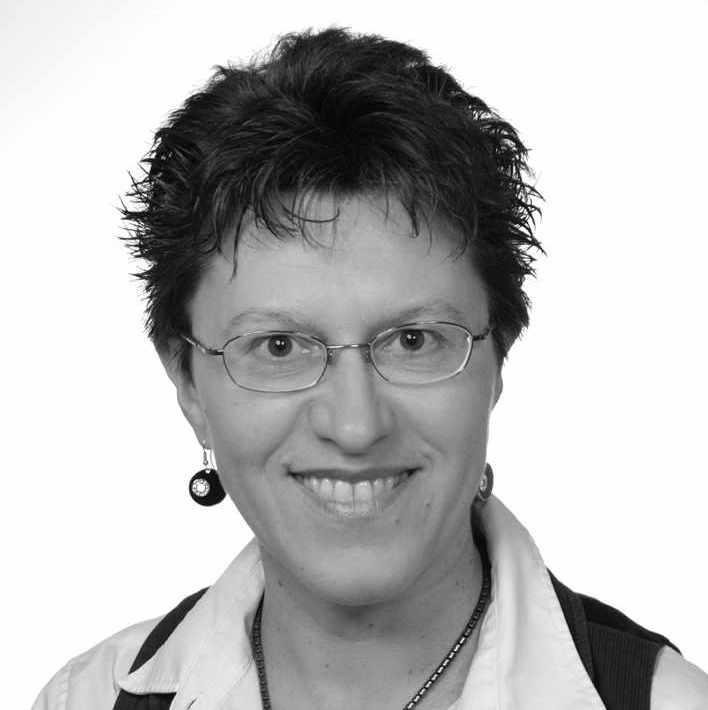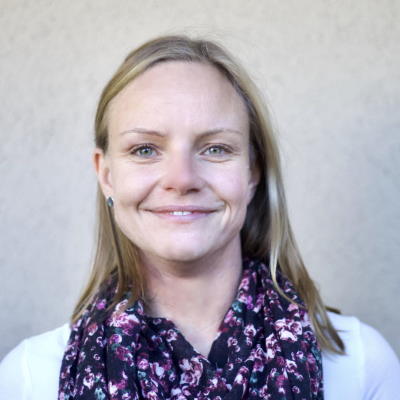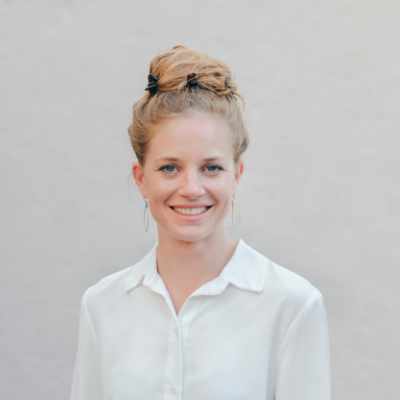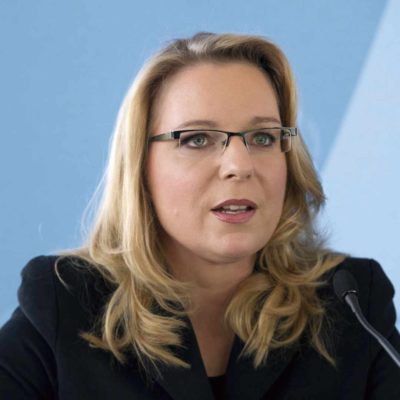Foundations of peace – peace logic
Friday, February 14, 2025 6:30-9:30 p.m. (admission 6:00 p.m.)
Venue: Smartvillage (ballroom), Rosenkavalierplatz 13, Arabellapark
How to get there: U 4 stop Arabellapark – 11 min from the main station
| Foundations of peace – The Peace Imperative of the German Constitution, Peace Logic and its Challenges | ||
| 6.00 p.m. | Admission – Visit the information stands and the book table in the foyer | |
| 6.30 p.m. | Music | The Neurosenheimers |
| Welcome Moderation | Dr. Angelika Claußen, IPPNW | |
| Winning the peace | Prof. Dr. Heribert Prantl | |
| Questions from the audience | ||
| Music | The Neurosenheimers | |
| Thinking the Peace Imperative in Terms of Peace Logic | Prof. Dr. Hanne-Margret Birckenbach | |
| Questions from the audience | ||
| Break | ||
| Music | The Neurosenheimers | |
| Militarized external borders, externalization and the fight against freedom of movement – the deadly isolation of the European Union | Dr. Kerem Schamberger | |
| Questions from the audience | ||
| Discussion | ||
| 21.30 hrs | End of the event | |
| Venue | smartvillage, Ballsaal, Rosenkavalierplatz 13, Arabellapark with the U4 in 11 min from the main station and 5 min on foot. | |
| Admission | Advance ticket sales HERE Admission €15, reduced €10 Remaining tickets also available at the box office. The event is open to the public and barrier-free. | |
| Download program | pdf for printing HERE |
Speakers
Prof. Dr. Heribert Prantl
Prof. Dr. H.-M. Birckenbach
Dr. Kerem Schamberger
Dr. Angelika Claußen
Workshops
Saturday, February 15, 2025
from 10:00 – 12:00 a.m.
Evang. Stadtakademie , Herzog-Wilhelm-Str. 24
| 9.30 a.m. | Admission | |
|---|---|---|
| 10.00 a.m. | Welcome and introduction (workshops take place in parallel and exclusively in presence) | |
| Workshop I | Becoming capable of peace. The principle of dialog compatibility | Prof. Dr. Hanne-Margret Birckenbach |
| The workshop is about the connection between the principles of peace logic. The emphasis is on what the principle of dialogue compatibility means in concrete situations. What do we mean by a dialogical approach, what does it contribute to the prevention of violence, conflict transformation, the development of interests and error-friendly learning? How does it work in specific cases? | ||
| Workshop II | Becoming Peace-Oriented Instead of War-Ready: How You Can Advocate for Peace | Sandra Klaft |
| Do you also feel helpless when you hear about the many current crises and wars and would like to actively campaign for a world without violence? Through practical exercises, we will look together at ways in which you can get involved in peace at an individual, social and political level. You will get to know the Peace for Future network and find out how you can become a peace mentor. | ||
| 12.00 p.m. | End | |
| Venue | Protestant City Academy, Herzog-Wilhelm Str. 24 | |
| Admission | Advance ticket sales HERE Admission price €10, reduced €5 Remaining tickets are also available on site. The event is open to the public and barrier-free. |
|
| Download program | pdf for printing HERE |
Speakers
Prof. Dr. H.-M. Birckenbach
Sandra Klaft
Foundations of peace – International
Saturday, February 15, 2025 from 6:30 – 9:30 p.m.
Venue: smartvillage (ballroom), Rosenkavalierplatz 13, Arabellapark
How to get there: U 4 stop Arabellapark – 11 min from the main station
| Paths to Justice – International Law and Dialog | ||
| 6.00 p.m. | Admission – Visit the information and book tables in the foyer | |
| 6.30 pm | Music – Harp | Barbara Pöschl-Edrich |
| Welcome and moderation | Johannes Zang | |
| How can International Law be leveraged as a “foundation for peace”? | Francesca Albanese | |
| Questions from the audience | ||
| Music – Harp The musical intermezzo offers space for reflection. | Barbara Pöschl-Edrich | |
| Break | ||
| Behind the Scenes of Peace – The Role of External Actors in Conflict Negotiations | Dr. Gershon Baskin | |
| Questions from the audience | ||
| Panel discussion | ||
| 9.30 p.m. | End of the event | |
| Venue | smartvillage, Ballsaal, Rosenkavalierplatz 13, Arabellapark with the U4 in 11 min from the main station and 5 min on foot | |
| Admission | Advance ticket sales HERE Admission €15, reduced €10 Remaining tickets also available at the box office. The event is open to the public and barrier-free. | |
| Download program | pdf for printing HERE | |
Speakers
Francesca Albanese
Dr. Gershon Baskin
Johannes Zang, Moderation
Sunday, February 16, 2025
| Alter Gaststeig – FAT CAT Munich Rosenheimer Str. 5, 81667 Munich | ||
| 10.00 – 13.00 | Workshop III Samba for peace – Samba for Peace Drums for beginners |
Thomas Rödl, DFG-VK Bavaria |
| The power and dynamism of a street samba group never fails to impress and gets people swinging, and not just at demonstrations for peace. How does the samba work? An introduction to drumming together with existing percussion instruments, for people with and without previous knowledge. | ||
| Leader: Thomas Rödl, for many years leader of the samba group Sole Luna and lecturer for samba percussion at the VHS Munich. | ||
| Admission | ATTENTION: Registration is required and takes place through advance ticket sales HERE Admission price 10 €, reduced 5 € The event is open to the public and barrier-free. |
|
| Eine-Welt-Haus Munich Schwanthalerstr. 80, Munich | ||
| 11.00 – 13.00 | Workshop IV Campaign: Peace-capable instead of first-strike-capable. For a Europe without medium-range weapons! |
Simon Bödecker, Live Without Armaments |
| From 2026, US cruise missiles and medium-range missiles that can hit targets far into Russia within minutes are to be stationed in Germany. At the same time, Russia is also developing such weapons and has already deployed them in Ukraine.
This development could lead directly to a further arms race and an uncontrollable escalation in Europe! Around 40 peace organizations have therefore launched the campaign “Friedensfähig statt Erstschlagfähig! They warn of the dangers and demand a stop to the stationing of medium-range weapons in Germany. Simon Bödecker will present the arguments and goals of the campaign. He will explain the background to the deployment decision and show why dialog and arms control must be the goal even in the current situation. One week before the Bundestag elections, the presentation and subsequent discussion will also focus on what each individual can do to campaign for a Europe without medium-range weapons. |
||
| Further information on the campaign can be found HERE | ||
| Venue | Eine-Welt-Haus Munich Schwanthalerstr. 80, Munich | |
| Admission | Advance ticket sales HERE Admission price €10, reduced €5 Remaining tickets are also available on site. The event is open to the public and barrier-free. |
|
| Download program | pdf for printing HERE | |
Speakers
Simon Bödecker
Thomas Rödl
Christoph von Lieven
Sabine Gruber

Vorsitzende des Präsidiums des Landesbezirksvorstands von ver.di Bayern
- geboren am 26.03.1967 in Eggenfelden
- 1983 mittlere Reife, Stefan-Krumenauer-Realschule Eggenfelden
- 1983 – 1985 Justizassistentanwärterin beim Amtsgericht Landshut
- seit November 1985 beim Amtsgericht München beschäftigt
- 1987 Eintritt in die Gewerkschaft ÖTV
- 1988 – 1990 Vorsitzende der Jugend- und Auszubildendenvertretung beim Amtsgericht München; bis 1992 Vorsitzende der Bezirks-JAV beim Oberlandesgericht München; Mitglied der Haupt-JAV
- 1989-1995 ÖTV-Kreisjugendausschuss München
- seit 1990 Mitglied im Personalrat beim Amtsgericht München
- ab 1991 Mitglied im Kreisvorstand der ÖTV München
- 1992 – 1995 Aufstieg in den gehobenen Dienst, seit 1996 Rechtspflegerin
- 1995 – 2001 Vorstandsmitglied im Kreisjugendring München-Stadt als Vertreterin der DGB-Jugend
- seit 2000 glücklich (!) verheiratet
- seit 2001 im Bezirksvorstand ver.di München
- seit 2001 Vorsitzende des Landesfachgruppenvorstands Justiz
- seit 2003 Mitglied im ver.di Landesbezirksvorstand Bayern
- seit 2006 stv. Vorsitzende des ver.di Bezirks München
- seit 2006 Vorsitzende des Fachbereichs 6 bei ver.di München
- seit 2006 Mitglied im Landesfachbereichsvorstand Bund/Länder
- seit 2006 stv. Personalratsvorsitzende beim Amtsgericht München, Mitglied im Bezirks- und Hauptpersonalrat
- seit 2007 Mitglied im ver.di Bundesfachgruppenvorstand Justiz
- seit 2011 Präsidium des Landesbezirksvorstands
- seit 2019 Vorsitzende des Präsidiums des Landesbezirksvorstands
Tommas Rödl
Dr. Fahim Amir

Claudia Paganini

Theresa Hirn
https://www.sicherheitneudenken.de
https://www.sicherheitneudenken.de/mach-mit/ich-spende/?
Mirka Hurter
She brings a background in social entrepreneurship and international emergency relief.
As co-project director of Peace for Future, which is part of the “Rethinking Security” initiative, she explores and shapes the possibilities and implementation of a new culture of peace and security policy.
She also works as a lecturer and facilitator in the field of peace research and (process-oriented) conflict transformation. https://peace4future.dehttps://www.sicherheitneudenken.dehttps://www.sicherheitneudenken.de/mach-mit/ich-spende/?
Meitaka Kendall-Lekka
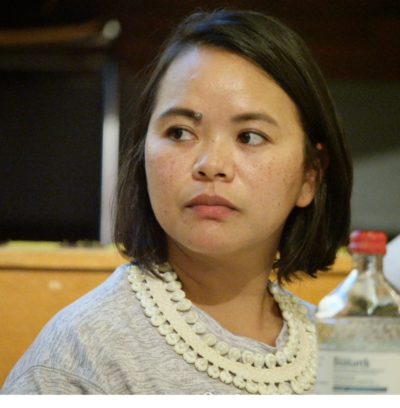
Clemens Ronnefeldt
Source: Archive Clemens Ronnefeldt
Gudrun Haas
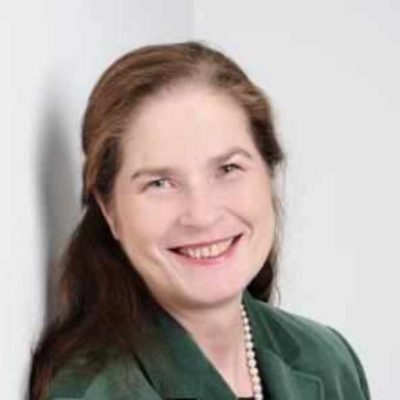
Dr. Angelika Claußen
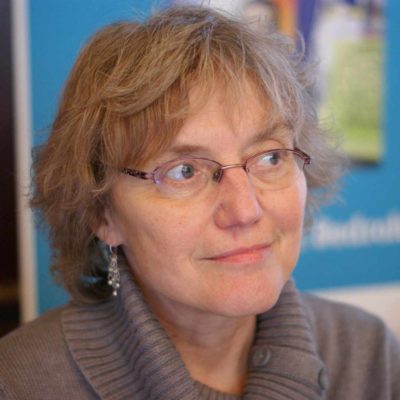
Prof. Dr. Claudia Kemfert
Katrin Habenschaden
Photo Credits: Anja Mörk
Christian Orth

Emily Zahira Binding
Nele Anslinger

Jochen Neumann

Thomas Lechner, City Councillor Munich
Human rights activist, cultural worker, DJ and non-party city councillor of the DIE.LINKE/die PARTEI parliamentary group with the following political priorities:A colorful, solidary Munich for young and oldThis includes participation, participation and equal opportunities for refugees and migrants, gender equality and equal rights for LGBTIQ* people, as well as genuine inclusion of people with disabilities. This also includes promoting civic engagement and greater democratic involvement of those affected in decision-making processes. No profits from land and rent – housing is a basic right I am in favor of a social and ecological land policy that keeps land in municipal hands. I want the construction of housing with municipal and non-profit housing associations, the strengthening of tenant initiatives and the promotion of property oriented towards the common good, such as cooperatives and apartment building syndicates Munich climate-neutral by 2025 I am in favor of expanding public transport, which should be ticket-free by 2025. I would like to expand pedestrian and bicycle traffic. Urban development must be planned sustainably, existing energy and resource guzzlers must be converted or shut down. Visions and investments for a modern, liveable & affordable Munich for ALL residents I want to fight poverty and secure well-paid employees, more staff in care and health and care close to the city, reduce bureaucracy in administration and create jobs in its service areas. This requires a different budget and investment policy, including a departure from the dogma of the debt brake. Thomas Lechner – For a solidary urban society (thomas-lechner.info)
Dr. Lars Pohlmeier
Katja Hennecke
Mustafa Erciyas

Ernst Hörmann
Michael von der Schulenburg
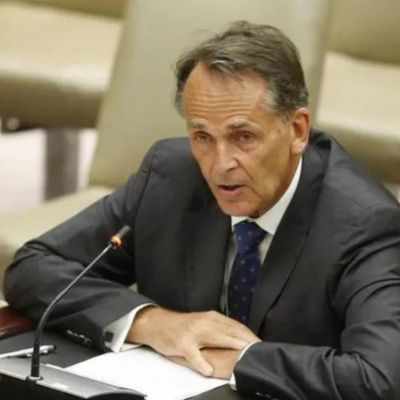
Clare Daly MEP

Clare Daly is an Irish politician and has been a Member of the European Parliament for the Irish party Independents 4 Change since 2019. Daly’s relentless criticism of Irish and European politics has made international headlines since at least 2013, when she condemned the silence of Irish politicians and media on US drone warfare during a visit by US President Barack Obama. Since then, her statements and actions on warfare in war zones such as Syria, Yemen, Ukraine, Israel/Palestine, etc., have regularly sparked controversy. Regardless of this, Daly consistently advocates the protection of human rights, diplomacy, de-escalation and – in the case of Ireland – neutrality in international conflicts. In the European Parliament, she advocates a negotiated solution to the war in Ukraine and a ceasefire in Israel/Palestine. To the homepage of Clare Daly HERE To the homepage of Clare Daly, MEP HERE
Olga Karach
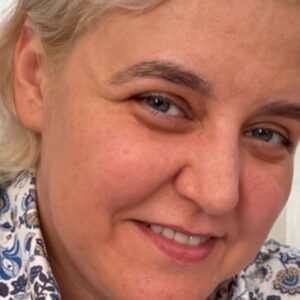
Prof. Dr. Olaf L. Müller

Photo by M. Heyde Quote from Olaf L. Müller on his book “Pazifismus. A Defense” “I have to admit that I am not at peace with myself and the world. That’s another reason why I’m anything but sure that I see things more correctly overall than the opponents of pacifism. And it upsets me to some extent when I have to listen to the self-assurance with which both supporters and opponents of arms deliveries launch their theses on a daily basis. Not that I’m envious, but I find it difficult to understand.” Olaf L. Müller studied philosophy and mathematics in Göttingen with minors in economics and computer science. He has taught philosophy of nature and science at the Humboldt University of Berlin since 2003. Research stays in Los Angeles, Krakow, Harvard and most recently in Tokyo, where he held a visiting professorship at Keio University in the winter semester of 2016. In his books, he defended Goethe’s attack on Newton’s optics (Mehr Licht, 2015); he analyzed the astonishingly large role of the sense of beauty in the development of modern physics (Zu schön, um falsch zu sein, 2019), told the story of the scientific cooperation between Goethe and Johann Ritter in the discovery of UV light (Ultraviolett, 2021) and argued for a pragmatic pacifism (Pazifismus. Eine Verteidigung, 2022). See also www.farbenstreit.de
Dr. Boniface Mabanza Bambu
Trainer for development policy and anti-racism Born in the Democratic Republic of Congo under Mobutu’s military dictatorship, studied philosophy, literature and theology in Kinshasa, doctorate at the University of Münster on the subject of “Justice can only exist for all. Criticism of globalization from an African perspective”, training in conflict management at the Academy for Conflict Transformation in Bonn. Coordinator of the Kirchliche Arbeitsstelle Südliches Afrika in the Werkstatt Ökonomie/Heidelberg since 2008 with a focus on trade policy, raw materials policy and globalization. Trainer for development policy and anti-racism for various institutions. He is active in numerous networks of the African diaspora in Germany and Europe. He has published numerous articles on various topics relevant to Africa, was a visiting professor at Goethe University in Frankfurt and one of the 24 members of the German government’s National Commission on the Root Causes of Displacement from October 2019 to May 2021.
Prof. Yanis Varoufakis
Yanis Varoufakis is a Greek economist, author and politician. He teaches economics at the University of Athens. Yanis Varoufakis is not a supporter of the BDS campaign. It does not support a blanket boycott of all individuals and/or companies solely on the basis that they are Israeli – and strongly condemns such campaigns based on ethnicity or religion – but opposes the trade in illegal settlements and the transfer of weapons and military technology to Israel. DiEM25 supports specific initiatives aimed at forcing the Israeli government to comply with international law. He was Greece’s finance minister from January to July 2015 and led the negotiations with Greece’s creditors to lead the country out of the crisis. He resigned after the failed referendum to reject the austerity dictate. In 2016, he co-founded DiEM25 and is also General Secretary of MeRA25, the party of DiEM25 in Greece. To the homepage HERE His books (selection) Adults in the Room – further information HEREAnotherNow – further information HERETechnofeudalism – further information HERE
Juliane Hauschulz

Juliane Hauschulz Project worker and campaigner for nuclear disarmament at IPPNW Germany. Juliane Hauschulz studied Political Science at the University of Potsdam, followed by a Master’s degree in Peace Research and International Politics at the University of Tübingen. She dedicated her thesis to the role of emotions in the discourse on nuclear weapons. In 2019, she took part in a DFG-VK youth delegation to a conference on the Nuclear Non-Proliferation Treaty at the UN. In the same year, she helped organize an excursion on the Peace Boat for a group of students from her Master’s program, during which the participants also met with a hibakusha from Nagasaki. These two experiences laid the foundation for their commitment to a world free of nuclear weapons ever since. Juliane Hauschulz has been working as a campaigner for nuclear disarmament at the German section of IPPNW (International Physicians for the Prevention of Nuclear War) since 2023. She is responsible for the To Survive is to Resist project, which focuses on the consequences of over 2,000 nuclear weapons tests worldwide. Since October 2023, she has also been a member of the board of ICAN Germany (International Campaign to Abolish Nuclear Weapons Germany). For more information on the “To Survive is to Resist” project, click HERE
Stella Ziegler
International student spokesperson at IPPNW Stella Ziegler has been studying human medicine at Charité Berlin since October 2019 and does a lot of voluntary work alongside her studies. At IPPNW (International Physicians for the Prevention of Nuclear War), she is both the spokesperson for the German students and the international student spokesperson. In this role, she organizes events and takes part in panel discussions and conferences as a speaker on various topics relating to the social responsibility of doctors. From November 27th until December 1st, 2023 she was a member of the IPPNW delegation to the Second Conference of Member States of the UN Treaty on the Prohibition of Nuclear Weapons in New York. At the site event “Abolishing Fossil Fuels and Nuclear Weapons: Live Update from COP28 to 2MSP!”, she spoke about the connection between the climate crisis and nuclear weapons and the role of doctors in this area. Further information about the Studi-Group Berlin HERE
Julian Mühlfellner
Julian Mühlfellner is a project worker for political education at the Helmut-Michael-Vogel-Bildungswerk e.V. and is active in the German Peace Society – United Opponents of Military Service (DFG-VK). He studied American Studies (B.A.) at the LMU Munich and International Relations (M.A.) at the University of Utrecht. His academic debate on European arms exports led him to the peace movement.
Maria R. Feckl

Maria R. Feckl has been the organizer of the International Munich Peace Conference since 2022. She is studying for a Master’s degree in Peace and Conflict Studies at the University of Innsbruck. As a peace activist, Maria R. Feckl is active in pax christi Erding-Dorfen and is a spokesperson for the regional committee of the DFG-VK Bavaria. She continues to volunteer as a local councillor and district councillor and wants to help shape the local community as a senior citizens’ officer and climate and energy officer. After graduating from high school, she initially worked as a nurse, also in the occupied Palestinian territories. She later studied Catholic theology at the Ludwig Maximilian University in Munich and at the Graduate Theological Union in Berkeley, CA. However, she did not stop at theology. She trained as a business economist and managed a mechanical engineering company for over 20 years. “I want to encourage people to get involved in politics.” Maria R. Feckl
Robi Damelin
The Parents Circle – Families Forum (PCFF) is a unique organization made up of more than 600 Israeli and Palestinian bereaved families. Since its inception, the members – who have all lost a family member to the conflict – have made a concerted effort during the ongoing violence to turn their incredible loss and pain into a catalyst for reconciliation and peace. They decide to transform anger and revenge, helplessness and despair into hopeful deeds. PCFF is a fully joint Israeli-Palestinian organization at all levels. With more than 25 years of experience in implementing reconciliation and peace education programs in Israel and the West Bank, the organization’s bereaved members speak publicly at over 300 reconciliation, dialogue and public events each year and engage in educational, public awareness and advocacy projects promoting humanization and empathy towards the “other”, both Israeli and Palestinian. Robi Damelin’sson David was killed by a Palestinian sniper in 2002 while on reserve duty guarding a checkpoint near a settlement. She speaks to Israelis, Palestinians and audiences around the world to demand that reconciliation must be part of any peace agreement. Robi was named a “Woman of Impact” by Women in the World in 2015 and was also selected by the Joan B. Kroc Institute for Peace and Justice at San Diego University as a Peacemaker. She is the protagonist of the award-winning documentary One Day after Peace. Robi was invited to brief the United Nations Security Council in May 2022. More information about the Parents Circle-Families Forum can be found HERE
Bassam Aramin
The Parents Circle – Families Forum (PCFF) is a unique organization made up of more than 600 Israeli and Palestinian bereaved families. Since its inception, the members – who have all lost a family member to the conflict – have made a concerted effort during the ongoing violence to turn their incredible loss and pain into a catalyst for reconciliation and peace. They decide to transform anger and revenge, helplessness and despair into hopeful deeds. PCFF is a fully joint Israeli-Palestinian organization at all levels. With more than 25 years of experience in implementing reconciliation and peace education programs in Israel and the West Bank, the organization’s bereaved members speak publicly at over 300 reconciliation, dialogue and public events each year and engage in educational, public awareness and advocacy projects promoting humanization and empathy towards the “other”, both Israeli and Palestinian. Bassam Aramin lives in Jericho in the West Bank. He was arrested at the age of 17 and spent seven years in an Israeli prison. He went on to study history and holds an MA in Holocaust Studies from the University of Bradford, England. He became a member of the Parents’ Circle in 2007 after losing his ten-year-old daughter Abir, who was killed by an Israeli border policeman outside her school. Bassam dedicates his time and energy to his conviction for a peaceful, non-violent end to the Israeli occupation of Palestine and for Israeli-Palestinian reconciliation. Bassam is the protagonist of Colum McCann’s award-winning novel “Apeirogon” and former co-director of Parents Circle. More information about the Parents Circle-Families Forum can be found HERE
Barbara Pöschl-Edrich
Harpist Barbara Pöschl-Edrich studied at the Mozarteum Salzburg, in London and Boston. She graduated with a Doctor of Musical Arts from Boston University, where she taught chamber music, harp and didactics from 2006 to 2014. During her years in the USA, she performed with the Boston Symphony Orchestra and Boston Classical Orchestra and worked with conductors such as James Levine, Seiji Ozawa and Kurt Masur. In Munich she works as a substitute with Munich orchestras, as a soloist and teacher, and with her historical harps.
Heribert Prantl
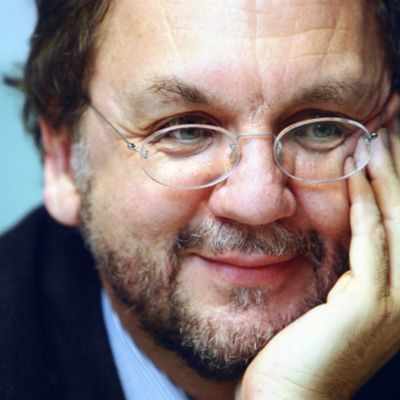
- Permanent author, commentator and columnist for the Süddeutsche Zeitung since March 2019
- Since 2018: Head of the newly founded central opinion department print and online
- 1992-2017: Head of the domestic policy department at the Süddeutsche Zeitung
- Since 2016: Honorary doctorate from the Faculty of Protestant Theology at the University of Erlangen-Nuremberg
- Since 2011: Member of the SZ editorial board Since 2010: Honorary professor at the Faculty of Law at Bielefeld University
- Since 1988: political editor at the Süddeutsche Zeitung. Initially domestic political commentator and domestic political editor with a focus on legal policy
- 1981-87: Judge at various Bavarian district and regional courts and public prosecutor
Studied philosophy, history and law. First and second state examinations in law, doctorate in law under Professor Dr. Dieter Schwab in Regensburg, legal clerkship. Parallel to this, journalistic training, awards, e.g:
- Catholic Media Prize / Special Jury Prize for the leading articles on the high feasts of the Church (2018)
- Honorary doctorate from the Department of Theology at Friedrich-Alexander-Universität Erlangen-Nürnberg (2016)
- Hildegard Hamm-Brücher Prize (2015)
- Journalism Prize of the City of Munich (2013)
- Brothers Grimm Prize (2012) Wilhelm Hoegner Prize (2011)
- Cicero Speaker Award of the Verlag für die Deutsche Wirtschaft AG (2010)
- Justice Medal of the Free State of Bavaria (2009)
- Roman Herzog Media Prize of the Convention for Germany for analysis and commentary on federalism (2007)
- Arnold Freymuth Prize “for services to the democratic and social constitutional state” (2006)
- Erich-Fromm-Prize (2006)
- Rhetoric Prize for the Speech of the Year 2004 of the Eberhard Karls University of Tübingen
- Theodor Wolff Prize for essayistic journalism (2001)
- Siebenpfeiffer Prize (1998/99)
- Kurt Tucholsky Prize for Literary Journalism (1996)
- Geschwister Scholl Prize of the City of Munich (1994)
Publications, among others:
- Winning the peace. Unlearn violence. (2024)
- On large and small resistance. Thoughts on time and untimeliness (2018)
- The power of hope. Food for thought in difficult times. Munich 2017.
- Instruction manual for populists. Wals near Salzburg 2017.
- What a single person can do. Political contemporary stories. Munich 2016
- Despite all this, you simply have to love Europe. Munich 2016
- Childhood. First home – thoughts that dispel fear. Munich 2015
- In the name of humanity – Save the refugees. Berlin 2015
- The splendor and misery of fundamental rights. Twelve stars for the Basic Law. Munich, 2014
- Alt. Amen. Beginning. New food for thought, Munich 2013
- The world as an editorial. On the future of journalism, Vienna 2012
- The wrath of God. Food for thought on the holidays, Munich 2011
- The terrorist as legislator. How to make politics with fear, Munich 2008
- Not a beautiful country. The destruction of social justice, Munich 2005
Kerem Schamberger

Hanne-Margret Birckenbach

Fields of activity:
- Peace and Conflict Research (FuK)
- Conflict analysis and conflict prevention
- European and International Integration
- Relations between EU and Russia
- Transformation and Conflict Prevention in Eastern Europe
- Human rights and minority policy
Member of the Northern Mediators Team further information HERE Understanding the logic of peace You don’t have peace, you have to make peace ISBN 978-3-7564-1539-5, 232 p., € 22.90 PDF: ISBN 978-3-7566-1539-1, € 21.99
Understanding the logic of peace You don’t have peace, you have to make peace ISBN 978-3-7564-1539-5, 232 p., € 22.90 PDF: ISBN 978-3-7566-1539-1, € 21.99
Sandra Klaft

Sandra Klaft (she/he) Peace for Future | Project Manager DFG-VK Frankfurt Local Group | Peace Education Officer Peace for Future is a project of Sicherheit neu denken. Curriculum vitae Sandra Klaft studied social sciences at the University of Göttingen and peace research and international politics at the University of Tübingen and has completed training as a consultant for non-violent conflict transformation and social movements at Kurve Wustrow. From the beginning of 2019 to the end of 2023, she lived and worked in Berlin, first as a campaign officer in the field of development policy and later as a program manager in the field of integration. Since February 2024, she has been project manager of Peace for Future and peace education officer at the DFG-VK Frankfurt am Main. She also works as a trainer and consultant.
Francesca Albanese
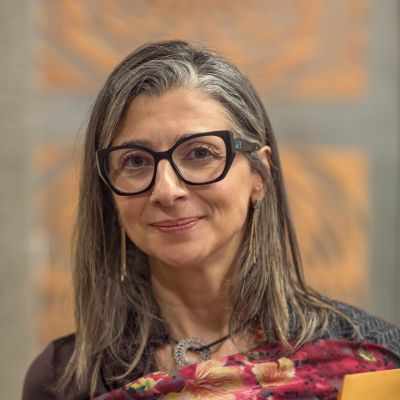
Ms. Francesca Albanese was appointed the Special Rapporteur on the situation of human rights in the Palestinian territories occupied since 1967, by the Human Rights Council at its 49th session in March 2022 and has taken up her function as of 1 May 2022. Ms. Albanese is an Affiliate Scholar at the Institute for the Study of International Migration at Georgetown University, as well as a Senior Advisor on Migration and Forced Displacement for a think-tank, Arab Renaissance for Democracy and Development (ARDD). She has widely published on the legal situation in Israel and the State of Palestine and regularly teaches and lectures on international law and forced displacement at universities in Europe and the Arab region. Ms. Albanese has also worked as a human rights expert for the United Nations, including the Office of the UN High Commissioner for Human Rights and the UN Relief and Work Agency for Palestine Refugees. https://www.ohchr.org/en/special-procedures/sr-palestine Bild: Ned Mansour
Kerstin Leitner

CURRICULUM VITAE Dr. LEITNER, Kerstin, German EDUCATION 1970 M.A. – History and Political Science Ph. D. – Political Science, History and Sociology 1975 – Freie Universität Berlin, Germany EXPERIENCE Since Sept. Retired from UN service, lecturer at Freie Universität, Berlin and Uni Potsdam (discontinued in 2021) 2005 member of Transparency International and various other NGOs July 2003 – Aug 2005: Assistant Director-General, WHO, Geneva, in charge of Sustainable Development and Healthy Environments March 1998 – July 2003: UN Resident Coordinator and UNDP Resident Representative, China 1975 – Various postings with UNDP in Benin 1975-79, Malawi 1987- 1990, China 1980-83 and at headquarters in New York March 1998: oversight of programs in Arab countries 1983-87 and Director Administration (1991 – 1998) 1973-75 Teaching/Research Assistant, Freie Universität Berlin 1971-73 Research Associate, University of Nairobi, Kenya Ms. Leitner has worked for 30 years in the field of development cooperation. Leitner has worked for 30 years for the UN system. Her career with the UN has taken her to four regions (Africa, Asia, Arab States and Europe) in positions with increasing responsibility. During 28 years with UNDP, she spent 17 years in country offices and 11 at headquarters, 21 years in program management and 7 in internal management. Two years with WHO rounded out her professional experience as a civil servant of a global public sector organization dealing with issues which transcend the responsibility of national governments and require well coordinated international cooperation (e.g. SARS, the management of chemicals such as POPs, AIDS). She now lives in Berlin/Germany and taught until 2020 for a number of years at her alma mater and at the Universität Potsdam about international public policies. She is a member of several German NGOs, Transparency Internatitonal and the German Association for the UN (DGVN) as well as of Diplomats without Borders. In the DGVN she serves as an active member of the Board. She also supports research in Peace and Conflict Management in Germany and internationally. Berlin, September 2024
Johannes Zang
Johannes Zang (born 1964) from Goldbach near Aschaffenburg has spent three extended periods in Israel/Palestine (1985-87, 1999-03, 2005-08). He worked as a lemon picker in a kibbutz, as a music teacher in Bethlehem and as a freelance journalist in Jerusalem. His current, fifth book is entitled Kein Land in Sicht? Gaza between occupation, blockade and war and was published by PapyRossa in Cologne in summer 2024. Zang has given over 300 lectures/readings on Israel/Palestine in German-speaking countries and in England and has accompanied over 60 groups on pilgrimage, encounter and political study trips through Israel, Palestine, Jordan and the Sinai. He speaks Arabic and Hebrew and has been running the Middle East podcast JeruSalam since 2021. Zang lives in his home town of Goldbach near Aschaffenburg. His website: https://jerusalam.info/
Simon Bödecker
Thomas Rödl
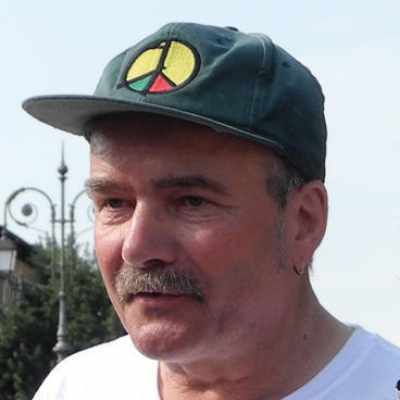
Gershon Baskin
Dr. Gershon Baskin is one of the best-known names in the Middle East peace process. He previously worked as a negotiator in hostage negotiations and as a government advisor. In 1988, he founded the Israel Palestine Center for Research and Information (IPCRI) and co-directed it for 24 years. He is currently Middle East Co-Director of the International Communities Organization. His work as a consultant, mediator and author has had a significant impact on peace and dialog work in the region for decades. Quote: “Strategic thinking requires the ability to shape events, policies and decisions in a way that creates a different reality.”
Hier können Sie sich für die Münchner Friedenskonferenz anmelden:

